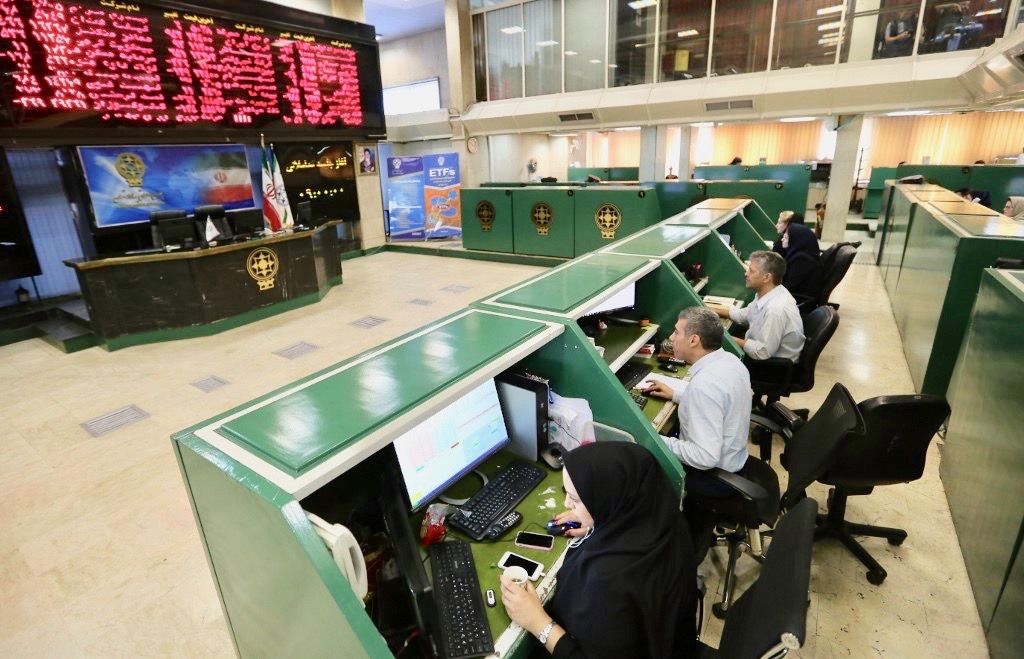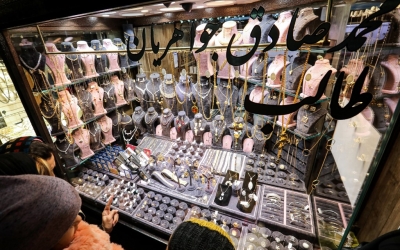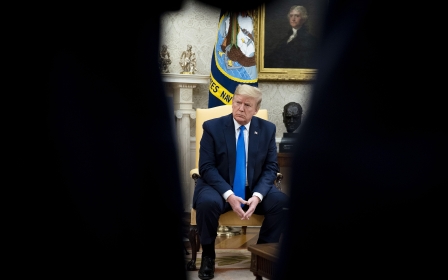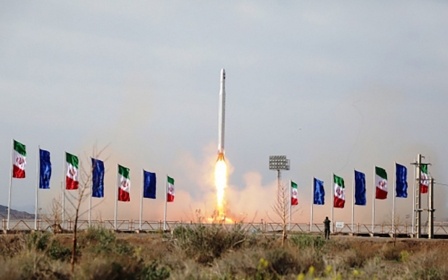Iran stock index rises past 1 million mark amid warnings market overheating

Iran's main stock index broke through the 1 million mark for the first time on Saturday, extending record highs despite warnings that the market may be overheating.
The gauge rose 4.4 percent to close at 1,020,897, according to figures on the TSE’s website. The rally was led by gains in industrial, petrochemical and mineral stocks including Mobarakeh Steel, Persian Gulf Petrochemical Industrial, and National Iranian Copper Industries, Bloomberg said.
Analysts say the booming stock market is at odds with Iran's economic fundamentals, which are deteriorating under the weight of US economic sanctions and the coronavirus pandemic, increasing the risk of a stock market bubble, Reuters reported.
Stocks in Iran have rallied to record highs since the government last month announced plans to sell about $2bn worth of state assets to raise money for the fight against the coronavirus pandemic. The benchmark index has surged by 113 percent since the country’s first Covid-19 case was recorded on 19 February.
Iran had seen a reduction in infections through April, but officials fear the reopening of businesses over the past few weeks may lead to a fresh outbreak. The country had reported 106,220 cases of the virus with 6,589 deaths as of Saturday, according to Worldometer.
The value of the country's rial currency has plummeted since the US quit the multi-power nuclear deal with Iran two years ago and reimposed sanctions, leaving the stock market as one of the few attractive investments for Iranians.
A recession in parallel markets including real estate, gold, foreign currency and cars has also helped increase investments in the stock market, according to the Iran Front Page website (IFP).
Still, economists warn that people should avoid emotional behaviour with stocks and be careful, as risk is a natural part of the market, IFP said.
Middle East Eye propose une couverture et une analyse indépendantes et incomparables du Moyen-Orient, de l’Afrique du Nord et d’autres régions du monde. Pour en savoir plus sur la reprise de ce contenu et les frais qui s’appliquent, veuillez remplir ce formulaire [en anglais]. Pour en savoir plus sur MEE, cliquez ici [en anglais].





